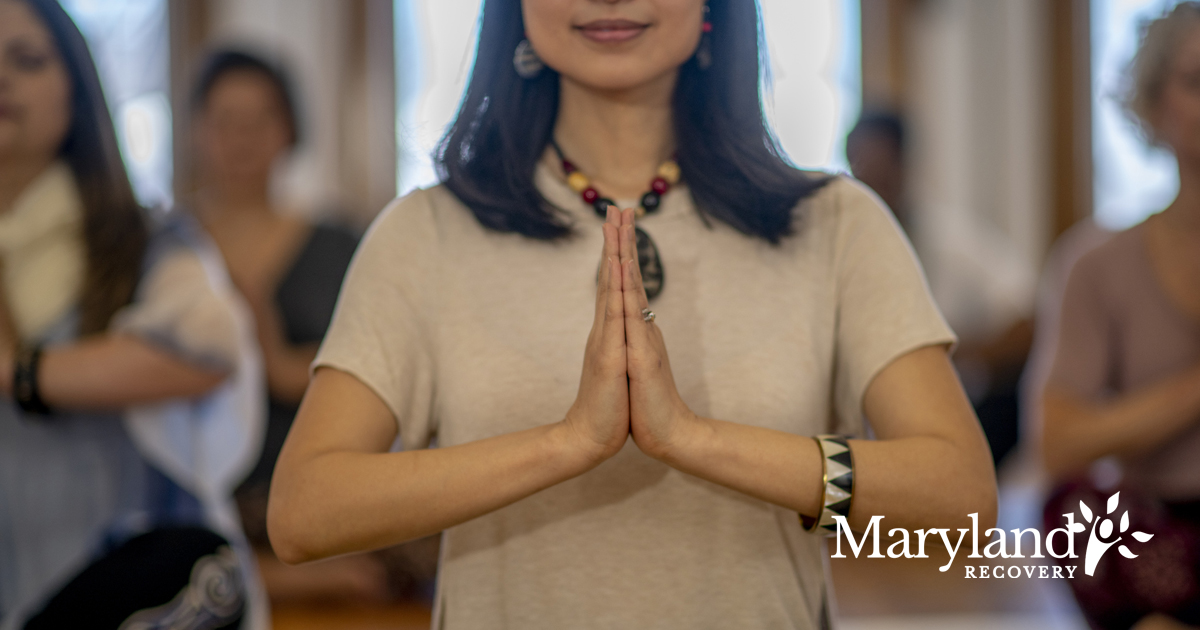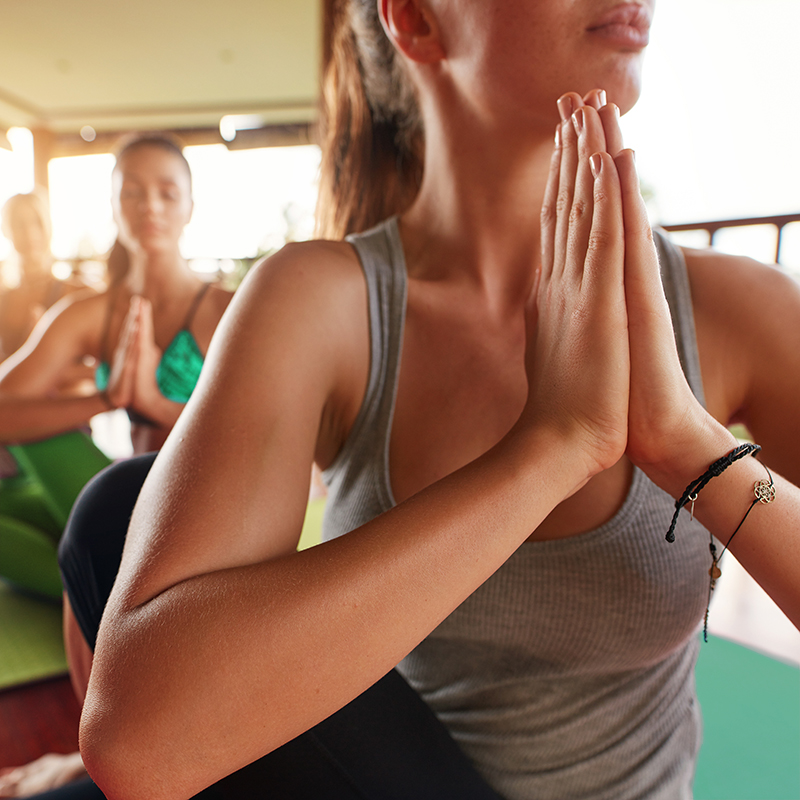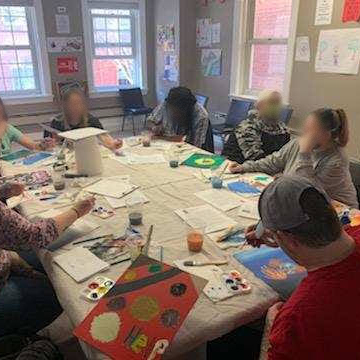
Recovery from addiction takes time and patience. It can take years for someone to become entirely comfortable with who they are without giving in to substance abuse. Keeping this in mind, people in recovery need to find professional treatment before returning to their former lives. A dedicated process for recovery will help those suffering from dependency to practice recovery skills in their day-to-day life and remember the strategies necessary to overcome the triggers of their addiction.
A one-time detox program or even one round of inpatient treatment is often not enough for most people to sustain themselves on their journey to post-recovery life. This is especially true if the inpatient program lasted one month or less. This is why Maryland Recovery’s intensive outpatient substance abuse treatment program is so successful.
Many of our patients arrive immediately after completing their inpatient treatment elsewhere. For these individuals, Maryland Recovery can provide ongoing treatment in a residential setting where healthcare professionals can teach patients the essential life skills they need to keep their recovery going strong for a lifetime.
Maryland Recovery is a reputable institution for providing effective and affordable drug and alcohol treatment programs in Bel Air, MD. Their unique and individualized outpatient recovery programs have attracted clients from neighboring Baltimore and Annapolis and the East Coast, and even other parts of the country.
Maryland Recovery Program
Maryland Recovery offers new clients a chance at recovery with their affordable primary and extended care program for alcoholism and drug dependency. At our center, clients stay in their own structured recovery homes and go for treatment at an outpatient facility in the heart of the town. The staff is equipped to diagnose and accommodate clients with mental health issues and other co-occurring disorders through several holistic treatment methods.
Maryland Recovery is a licensed, Joint Commission-accredited primary and extended care alcohol and substance abuse treatment provider. For us, it doesn’t matter where a patient is on their journey to recovery; Maryland Recovery is there to assist them towards long-term sobriety.
Maryland Recovery can also accommodate individuals who have special insurance needs or for people who are looking for more affordable care. While in a recovery program, clients will undergo an individualized plan that includes detox, medication assistance, PHP, and IOP services.
The ideal period for a patient to stay in Maryland Recovery treatment is for at least 60-90 days, regardless of whether they go through PHP and IOP or just the outpatient treatment. A more extended period of supported care has led to better results in recovery and beyond.
The philosophy at Maryland Recovery is simple. A healthy lifestyle and a structured program can immensely help change one’s thinking and behavior.
Maryland Recovery Program Highlights
- Individual and Group Counseling
- Prevention of Relapse
- Life Skills Coaching
- Applying a Strong, Personalized 12-Step Recovery Program
- Medication Management for Co-occurring Disorders
- Primary and Extended Care Programs
- Counseling and Psychiatric Services
- Detox Program
- Meditation and Mindfulness
Maryland Recovery Program Highlights Includes a Holistic Approach towards Recovery
At Maryland Recovery, you can expect a holistic approach to their methods for recovery in their alcohol and drug rehab programs. This approach helps clients in going from living with an addiction to living with sobriety with minimal ongoing assistance.
Holistic rehab treatment helps address the behavioral and social needs of the patients in recovery. A side effect of substance dependency is that a person will often adopt habits that assist them when they need drugs or alcohol. These habits need to be addressed with care and compassion in recovery.
An essential part of the holistic rehab approach involves helping the patients recognize issues that go beyond habits to the risky habits and behaviors that accompany dependency. A few of these include poor nutrition, lack of exercise, or engaging in negative social circles. A holistic program targets more than dependency but helps them build their mind, body, and spirit so that they are better able to overcome triggers and temptations in the future.
New Program Highlights
There’s no one way to recover from an addiction. That’s why we use a variety of options in our new programs.
Some of the therapies and activities we use in our holistic addiction treatments include:
Yoga for Addiction Recovery

Yoga offers much help to those suffering from addiction, including mental, physical, and even spiritual benefits. The original purpose of yoga was for a person to become more aware of their nature, recognize and reject things that negatively affect them. Because yoga helps people by focusing on and developing stronger connections to positive aspects of themselves, those struggling with dependency can substitute their negative feelings for positive ones.
At Maryland Recovery, we offer a weekly yoga session with a very experienced instructor who used to teach in New York. The instructor has created a yoga class specifically for clients in early recovery.
Meditation and Mindfulness for Addiction Recovery
At Maryland Recovery, there is daily guided meditation which takes place sometimes several times a day. Meditation helps the patient immensely in staying calm and maintaining focus on their recovery journey. Guided meditation helps those in recovery find contentment from within and eases the mental aspect of addiction.
Workout Rooms
Mind and body are connected, and that’s one reason we believe exercise is so crucial to those on their recovery journey. We offer staff-supervised workout rooms for clients. It has been proven that regular exercise can have a profound effect on mental health disorders such as depression, anxiety, and ADHD. Many of these occur simultaneously with addiction and even fuel some to self-medicate with illegal drugs. Physical activity can help these comorbidities. It can also relieve stress, improve memory, help the patient sleep better, and boost overall mood.
Paint and Snack Class

Maryland Recovery’s holistic program will offer a “Paint and Snack” class twice a month as part of the recreation program. A local artist in recovery will be offering a guided class to teach patients works of art. The theme of the paintings will be inspiring change and positivity.
Patients will get an emotional release through the painting, which allows them to relax and let go of all the problems contributing to a high-stress level. When the patients create something beautiful, they stimulate their creative minds and relieve some of their mental strain.
Women’s Group
 Peace is an important element of recovery. We offer a women’s group that comes with spa time. Spa time will include facials and manicures. Having a grooming and hygiene routine is essential for people suffering from mental health issues or dependencies, as they usually have difficulty maintaining a routine.
Peace is an important element of recovery. We offer a women’s group that comes with spa time. Spa time will include facials and manicures. Having a grooming and hygiene routine is essential for people suffering from mental health issues or dependencies, as they usually have difficulty maintaining a routine.
Looking clean and fresh has a positive impact on your self-esteem. The patients feel much better about themselves once they know that they are looking their best. Confidence can impact your mental health immensely.
Auricular (Ear) Acupuncture for Addiction Recovery
Acupuncture is an ancient Chinese medicinal practice that has gained importance in the West in recent decades. The ear can communicate with almost any part of the body and contains several pressure points.
In auricular acupuncture, thin needles are injected into the outer ear’s different parts to stimulate healing. This practice can help with various disorders, from headaches and pain disorders to allergies and drug cravings.
How Does Holistic Treatment Help in Recovery from Substance Abuse?
Holistic therapies have been shown to help treat the symptoms of mental health disorders quite effectively. Quitting drugs and alcohol is simple, but staying on that course throughout your post-recovery journey is quite difficult. That is where holistic therapy comes in.
Even after someone has taken a detox program or has started their addiction recovery, the person can still relapse because they have taken the decision to take drugs or alcohol again. Because it’s your mind that makes the decision and lets its guard down, mental health treatment should be your first priority against drug and alcohol relapse.
The Effects of Dependency
Dependency doesn’t just affect a person physically, but it breaks down a person in all three areas of their life, physical, mental, and spiritual. Maryland Recovery takes a three-pronged approach through its holistic addiction program to help our clients get well.
Spiritual activities such as yoga are very helpful for clients who are in treatment for drug or alcohol addiction as it helps them to calm their mind and be still. Meditation is one such activity that many people have found helpful. These spiritual activities are good habits that one can adopt to prepare them for life beyond rehab.
Apart from spiritual health, physical health is one area which is often neglected by patients of substance abuse problems. This is why Maryland Recovery includes fitness training and yoga. There’s a high probability that many addicts may not have been getting a balanced diet, so clients are encouraged to participate in meal planning and preparation, which is a valuable life skill.
Find Help at Maryland Recovery
 There are people who turn to substance abuse because they don’t feel in control of their life and environment. At Maryland Recovery, the residential-style buildings offer a safe and clean environment to the patients. This ensures that this private and comfortable atmosphere can help a patient recovery – and not just from the addiction. Our programs ensure patients who mind and body start the path to wellness. Our treatment options are provided at an outpatient facility, after which clients return to their residential houses to safely start their post-addiction journey.
There are people who turn to substance abuse because they don’t feel in control of their life and environment. At Maryland Recovery, the residential-style buildings offer a safe and clean environment to the patients. This ensures that this private and comfortable atmosphere can help a patient recovery – and not just from the addiction. Our programs ensure patients who mind and body start the path to wellness. Our treatment options are provided at an outpatient facility, after which clients return to their residential houses to safely start their post-addiction journey.
Learn more about our individualized addiction treatment program here or give us a call anytime to talk to someone who can help: (877) 762-3766.
Reviewed by Christopher Schwartfigure MS, LGPC, CAC-AD








